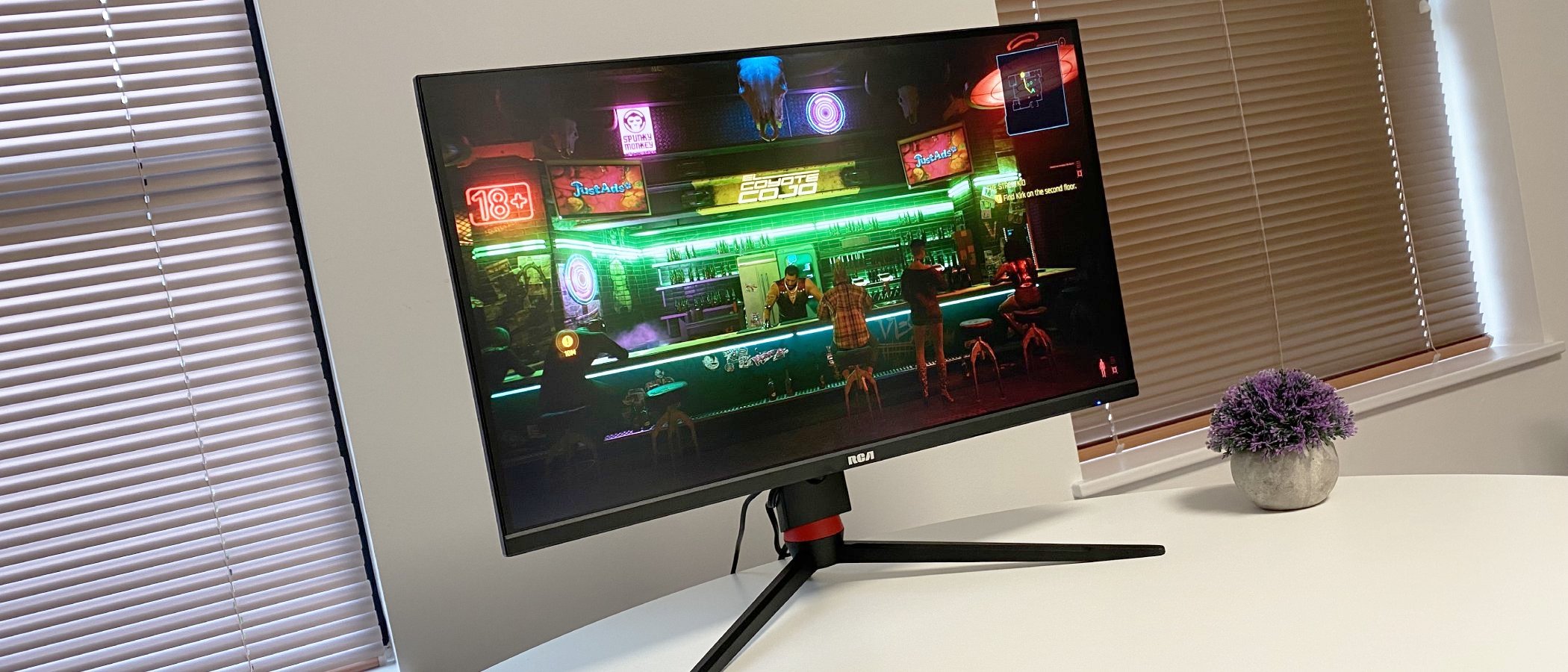Our Verdict
If you didn't know RCA did gaming monitors, that's because it didn't. Until now. Its first effort is a creditable 240Hz 1440p model. But it probably doesn't do enough to stand out from existing, more familiar brands in the segment.
For
- Strong feature set
- Nicely calibrated IPS panel
- Low-latency 240Hz experience
Against
- All a bit generic
- Slightly conservative overdrive settings
- Not a genuine HDR monitor
PC Gamer's got your back
Do not adjust your screens. Your eyes do not deceive you. This is a high-refresh gaming monitor from RCA, formerly a company that pioneered early radio and TV tech and now essentially some branding IP licensed by several companies, including in this case DTI Services, an Indianapolis-based company that primarily makes TVs.
Whatever, the RCA Evolution Premium M27PG135F, a 27-inch 1440p 240Hz model, is our first taste of the brand's new foray into serious gaming hardware.
Out of the box and it's all pretty familiar, if not a little generic. That's probably a good thing. RCA isn't trying to reinvent the gaming monitor with the M27PG135F. The build quality is a little hollow and plastic, but that's typical for this class of display.
You get a reasonably sturdy stand with a metal base and a full range of adjustments, including pivot into portrait. So, RCA hasn't skimped on the ergonomics. Likewise, the slim-ish bezels on three sides of the panel—plus a larger chin—are standard aesthetic fare, as is the light sprinkling of RGB lighting on the rear.
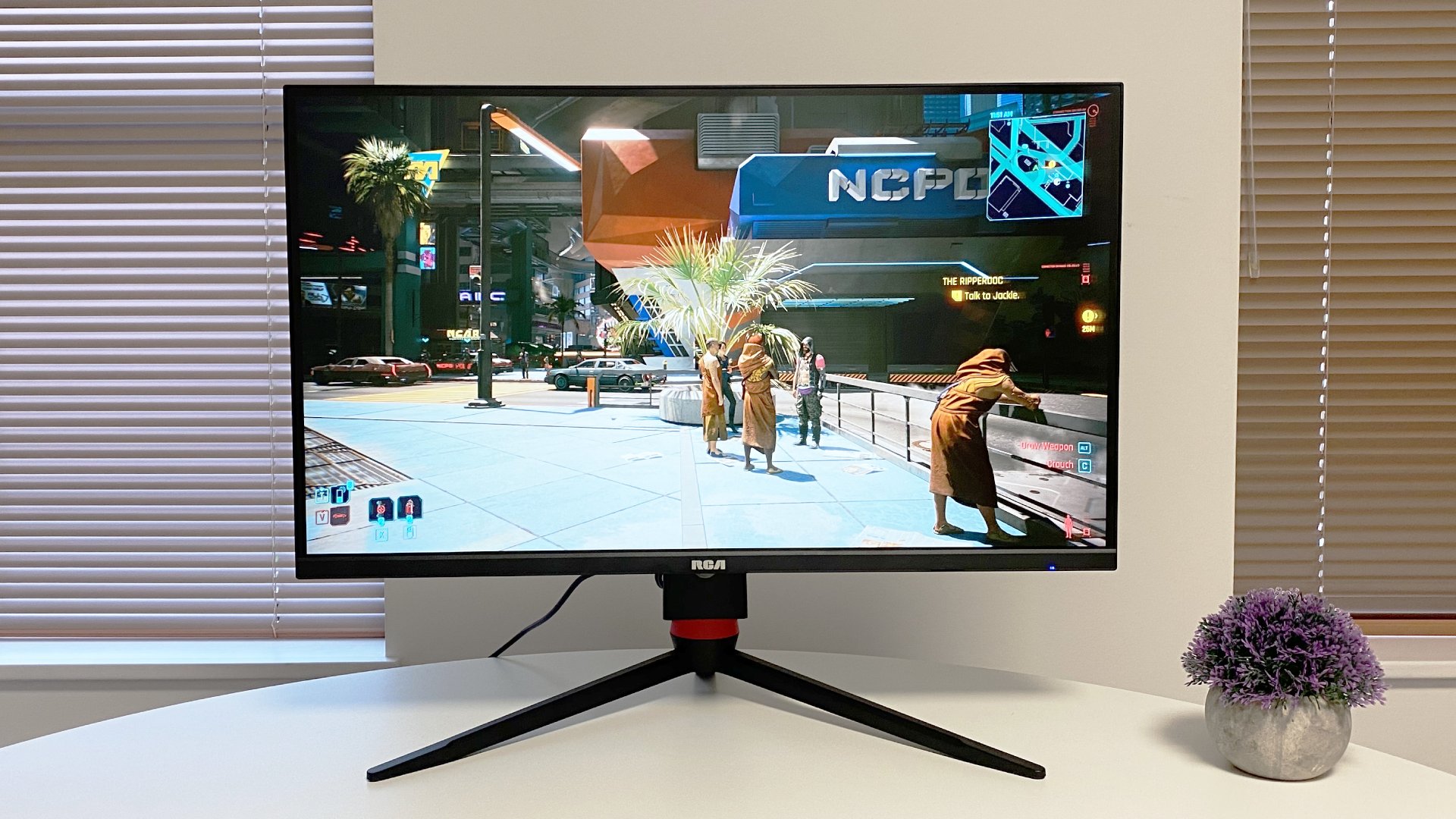
Screen size: 27-inch
Resolution: 2,560 x 1,440
Brightness: 300 nits
Color coverage: 95% DCI-P3
Response time: 1ms
Refresh rate: 240Hz
HDR: HDR10
Features: IPS panel, adaptive sync, 1x DisplayPort, 2x HDMI, 1x USB-C with 90W PD, KVM switch
Price: $369
Connectivity is well covered, too, with DisplayPort, two HDMI sockets and even USB-C with 90W of power delivery. The inclusion of a KVM switch is a nice addition and contributes to a pretty strong all-round features set.
Specs-wise, there are no real surprises from the IPS panel. This is a 27-inch 1440p model with 240Hz refresh capability, and 1ms claimed GtG response. There is basic HDR support, but with a peak brightness of 300 nits, it doesn't qualify for explicit DisplayHDR 400 certification. Coverage of the DCI-P3 gamut, if that's of concern, comes in at 95%, which again is decent but not remarkable.
And that, in a nutshell, sums up the image quality on offer. Definitely decent, but probably not remarkable. The color calibration is pretty much on point, though the range of gamut presets is fairly limited.
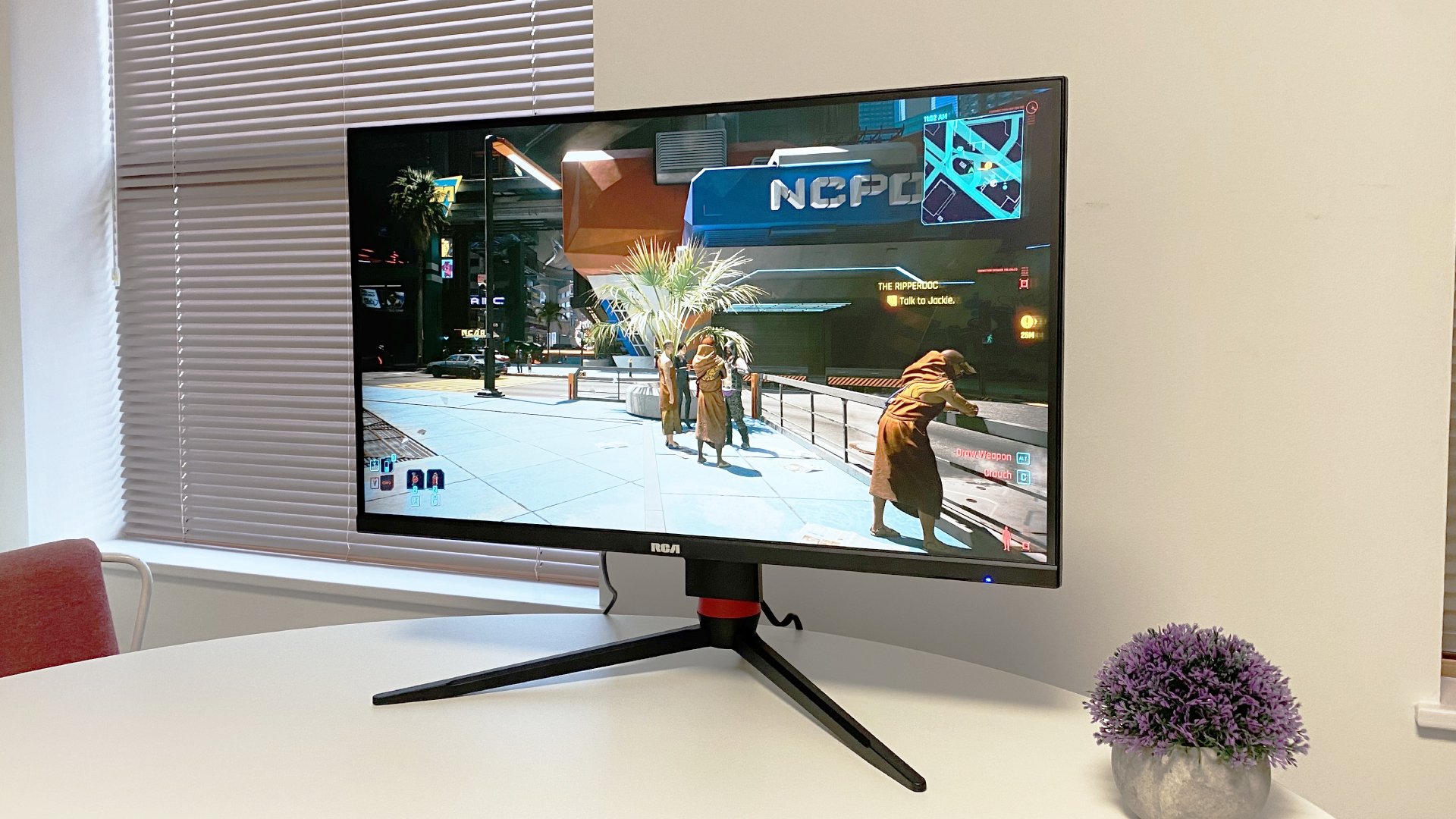
That, in a nutshell, sums up the image quality on offer. Definitely decent, but probably not remarkable.
Beyond the default user mode, there's sRGB but no DCI-P3 mode. That's not much of an omission for gaming, however, and in other regards you can add the OSD menu to the list of elements that meet but do not exceed expectations, more on which in a moment.
As for brightness, that could be a bit of a concern, what with the modest 300 nit rating. But subjectively, the level of punch on offer for SDR content is comparable to typical HDR400 panels. As for HDR content, as you'd expect, this monitor doesn't give a true HDR experience. There's no local dimming, and while RCA doesn't quote the contrast ratio, this is a conventional IPS panel and thus will be capable of 1,300:1 at best.
Still, HDR video doesn't look bad, it's just debatable if it looks any better than the same content in SDR mode. It's a bit more complicated when it comes to gaming. Running, say, Cyberpunk 2077 with HDR goodness switched on, brighter highlights do have a bit more pop than in SDR mode.
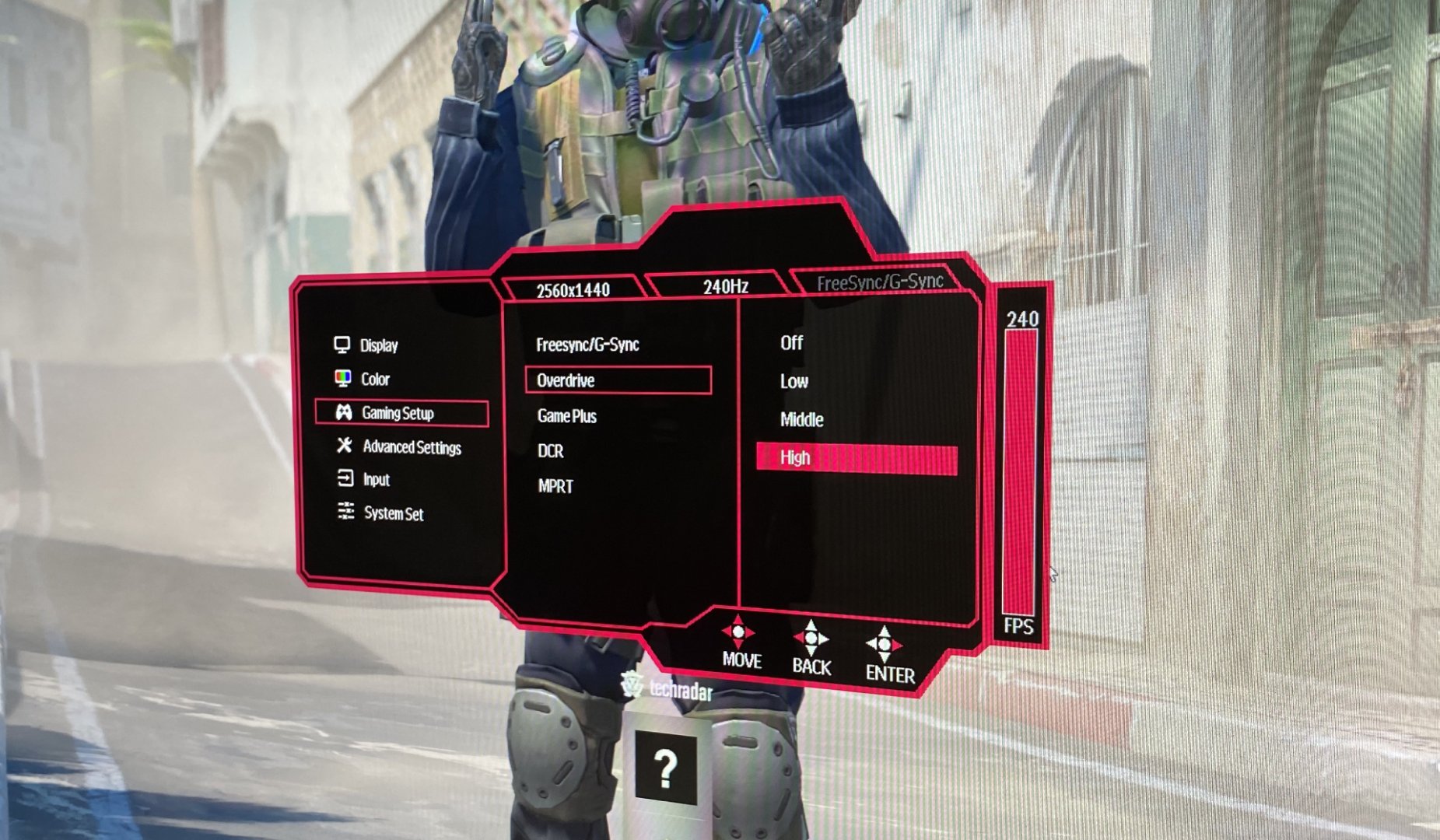
RCA could have been just a touch less conservative with the overdrive options here.
But equally darker scene elements are pretty crushed, to the extent that it's hard to see what's going on in dimly lit or underground locations. In short, it's questionable whether you'd use the limited HDR capabilities in-game, though they may come in handy for watching HDR video content without distorted colors.
All that said, re HDR we won't hold this monitor's limitations against it. It's not materially different to other pseudo-HDR panels in this class.
Much more important is speed and here the RCA Evolution Premium M27PG135F puts on a decent showing. There are three levels of pixel accelerating overdrive in the OSD menu and even the fastest option only introduces the tiniest whiff of overshoot.
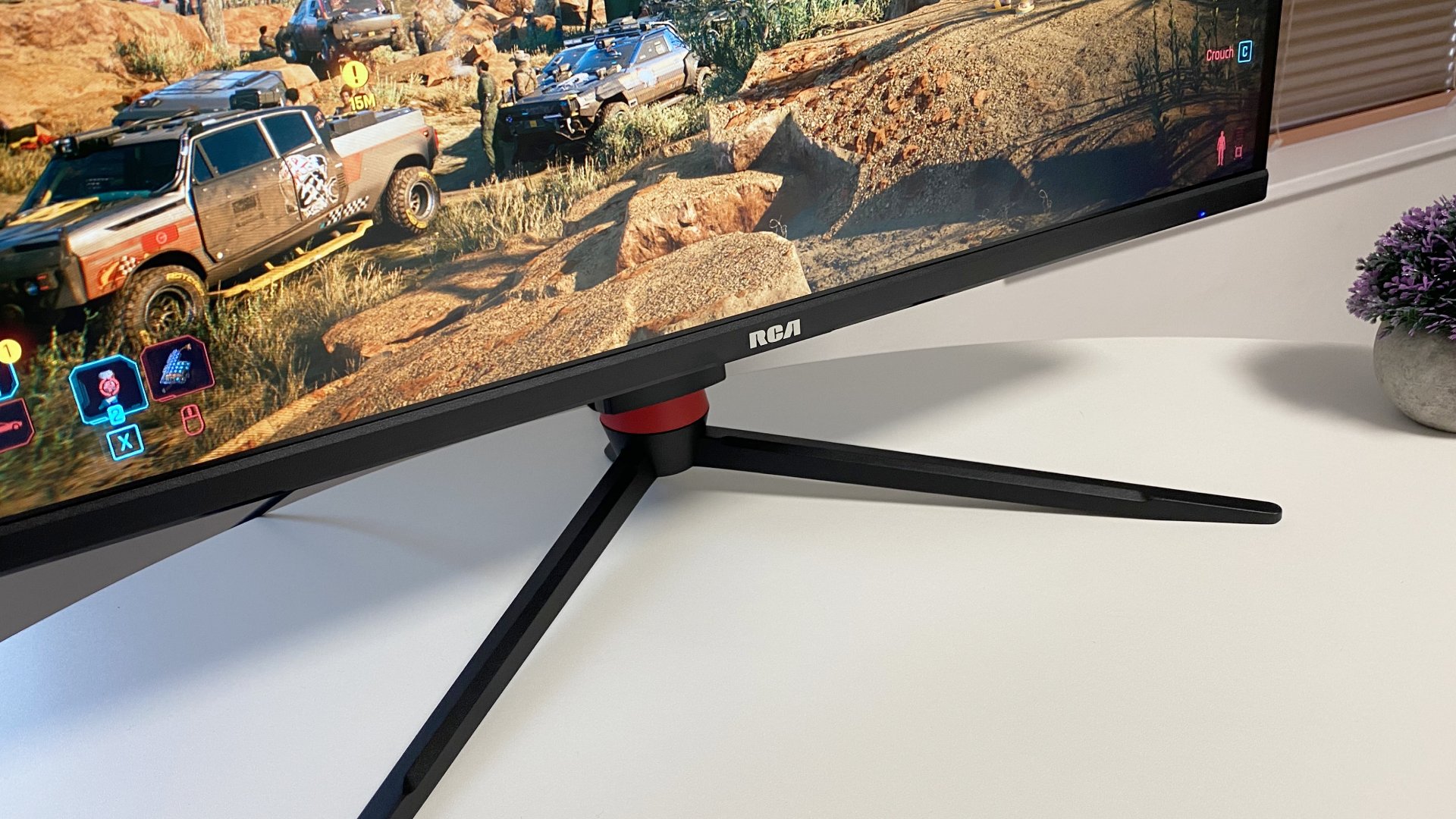
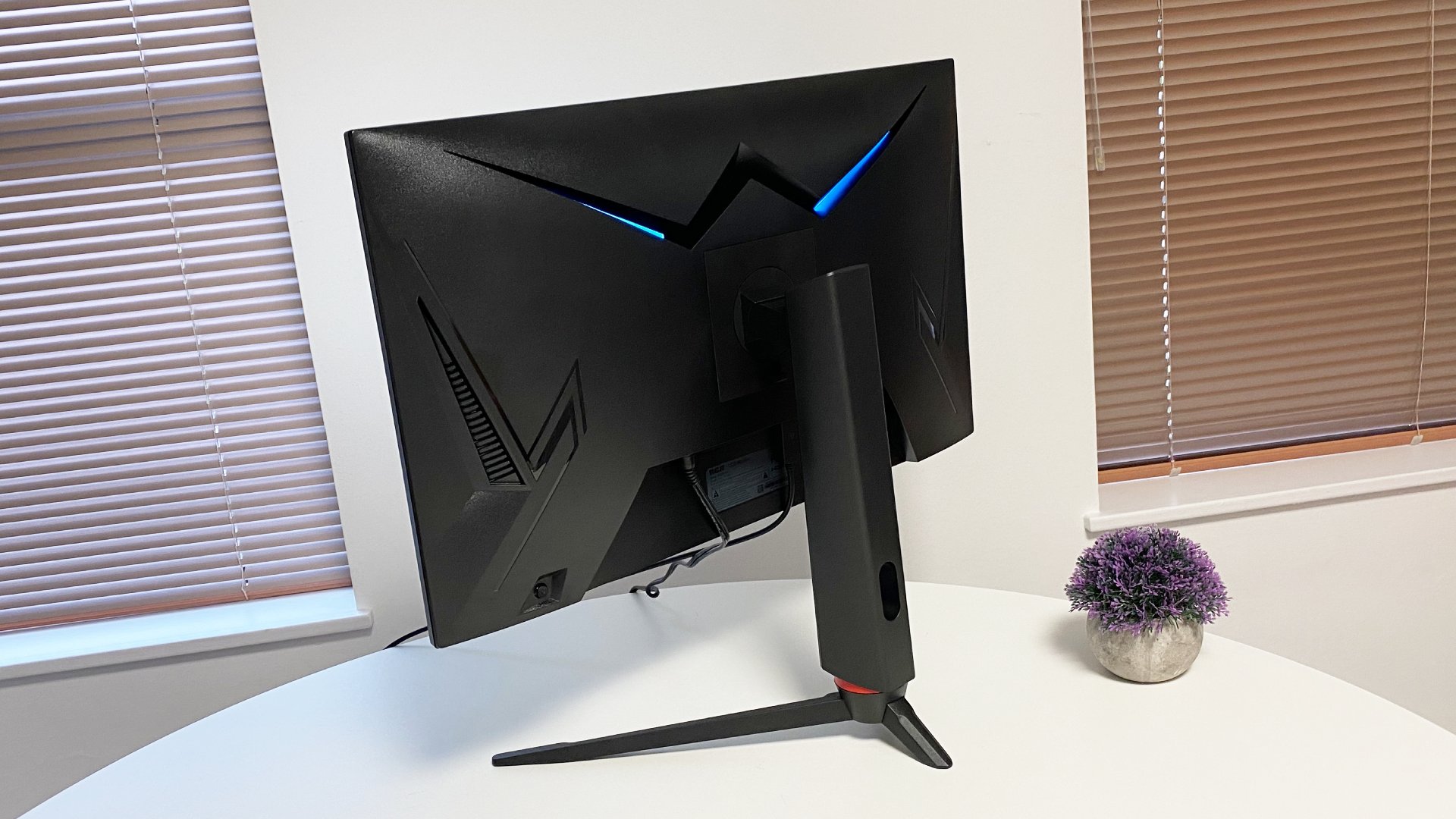

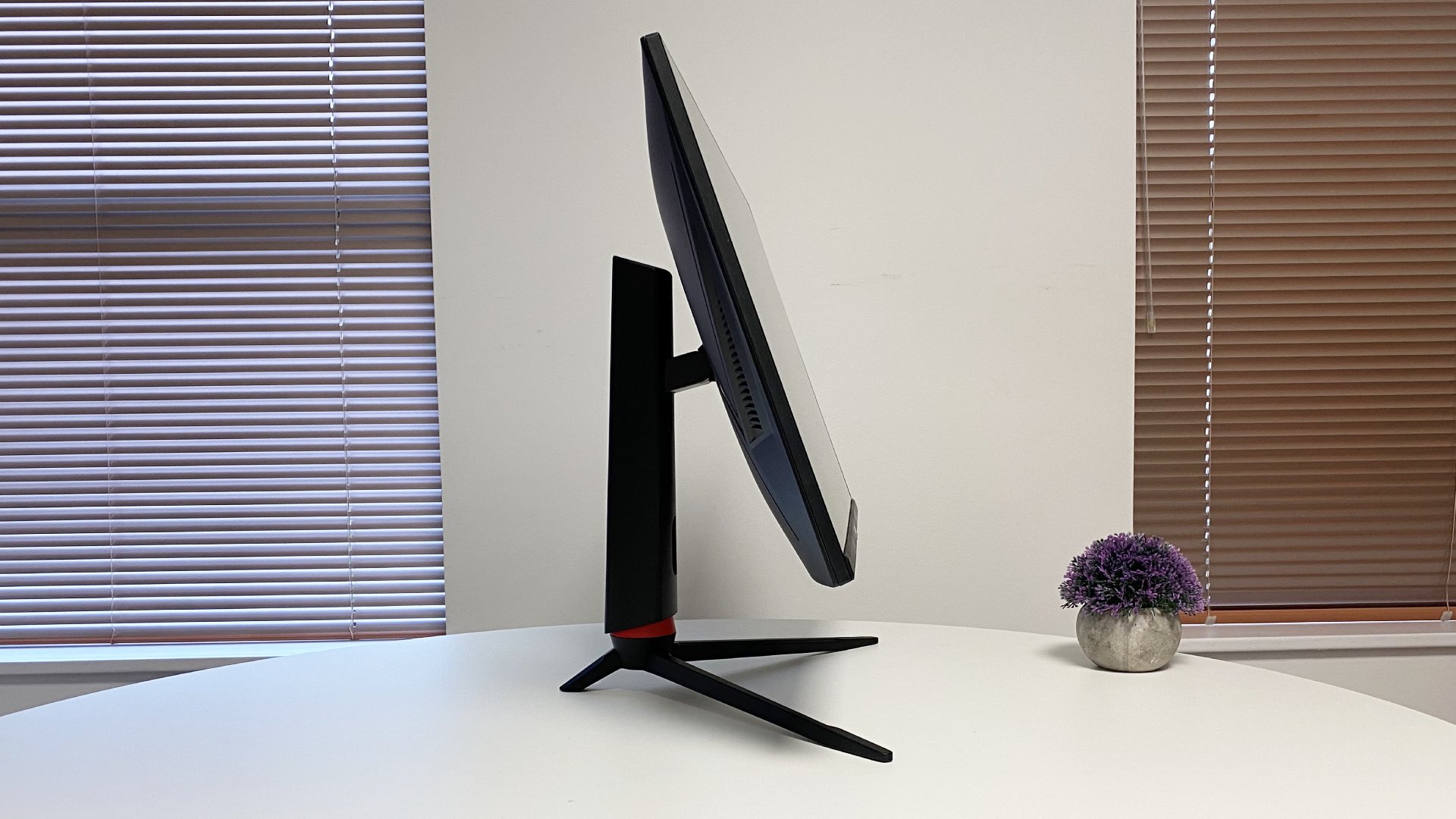
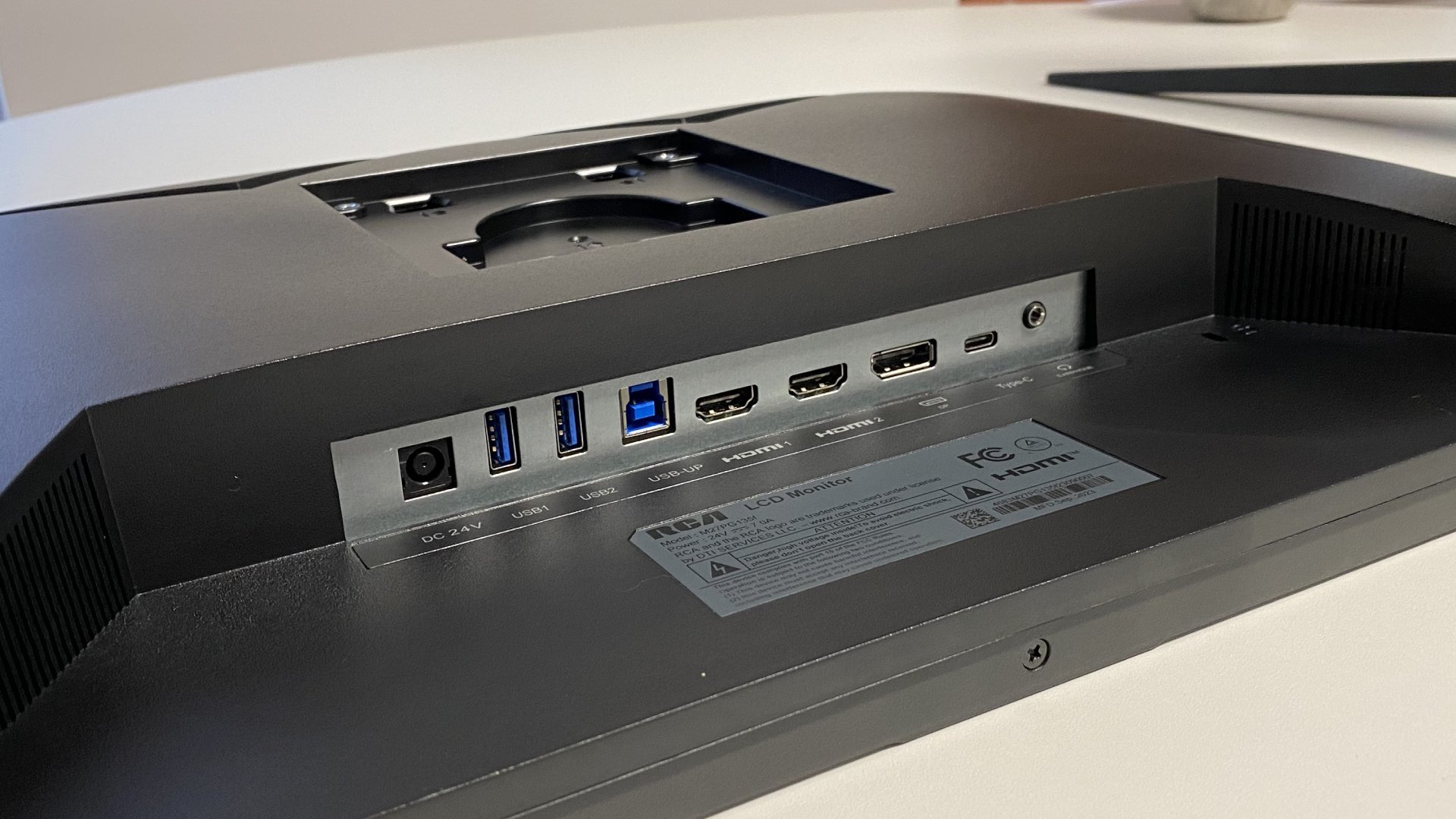
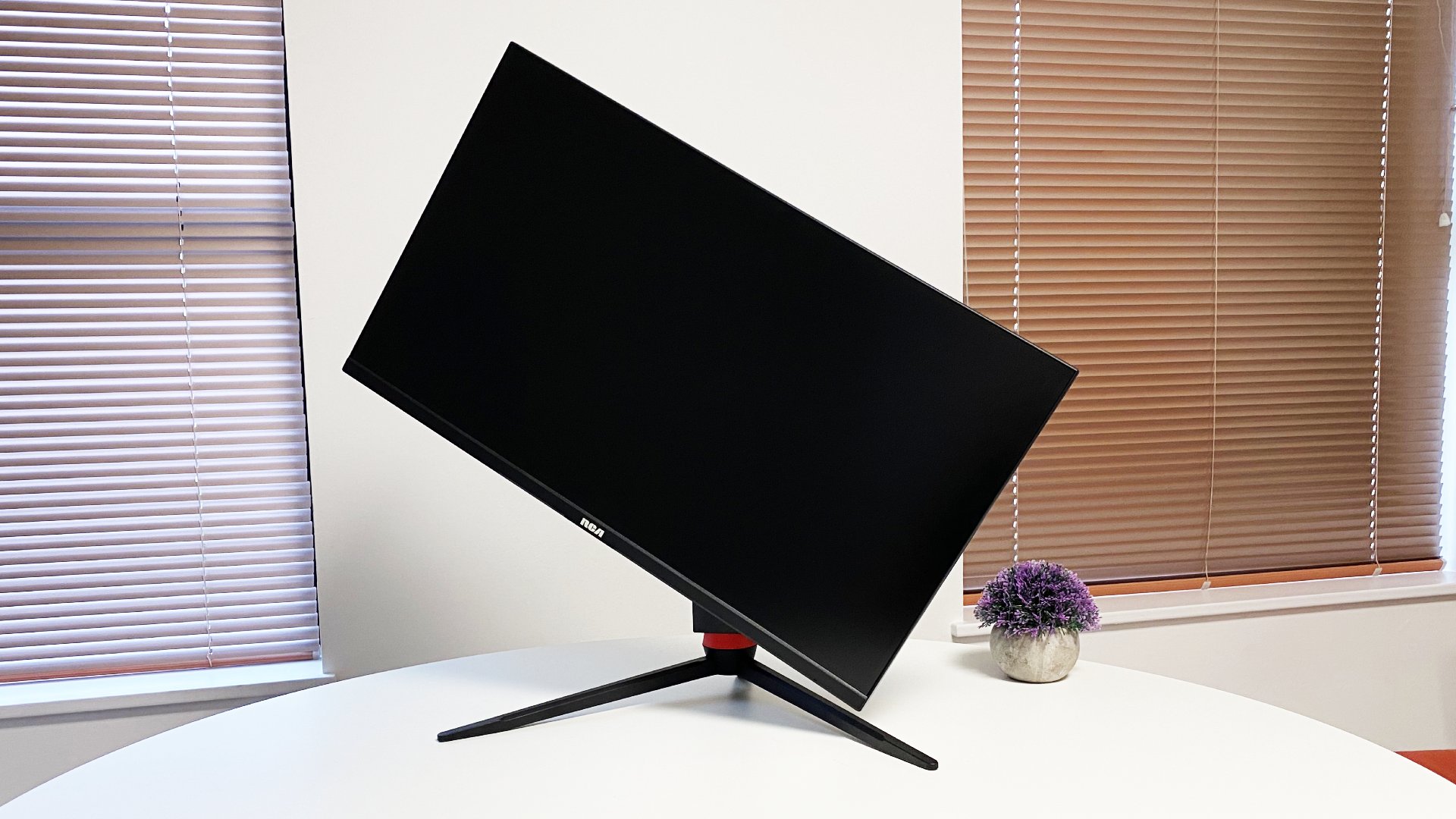
You might think that's a good thing. However, a slightly more aggressive max setting can be desirable in some games. If you're playing, for instance, Counter-Strike 2, that's a game which responds really well to aggressive overdrive. It tends to looks crisper and sharper and without the overshoot and associated inverse ghosting being noticeable.
Anyway, we think RCA could have been just a touch less conservative with the overdrive options here. There are IPS panels with slightly crisper motion reproduction as a consequence.
On the other hand, we doubt you'll have any problems with this monitor's latency. All 240Hz are present and accounted for, making for buttery smooth frame rates and essentially zero subjective latency.
✅ You want a good all-round 1440p gaming panel: This new RCA doesn't do anything exotic, but it's a good performer with a strong feature set.
❌ You want a proper HDR experience: With a peak brightness of 300 nits and no local dimming, this is not a true HDR monitor.
All of which means we basically like the new RCA Evolution Premium M27PG135F. It gets pretty much nothing badly wrong and a lot right. It doesn't do anything radical or new or unexpected. But for the most part, that's a good thing.
The only slight snag, if there is one, is the question of: Why would you buy this monitor in particular over the more obvious brands? It's a decent performer, but then so is much of the more familiar competition. It's reasonably priced, but then so is... well, you get the idea. This is a solid first effort from RCA. But the brand probably needs to do a little more to earn conquest sales from the better established competition.
If you didn't know RCA did gaming monitors, that's because it didn't. Until now. Its first effort is a creditable 240Hz 1440p model. But it probably doesn't do enough to stand out from existing, more familiar brands in the segment.

Jeremy has been writing about technology and PCs since the 90nm Netburst era (Google it!) and enjoys nothing more than a serious dissertation on the finer points of monitor input lag and overshoot followed by a forensic examination of advanced lithography. Or maybe he just likes machines that go “ping!” He also has a thing for tennis and cars.
